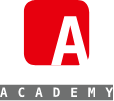Abstract
Objective: The aim of this randomized controlled trial was to evaluate the safety and efficacy of neodymium: yttrium aluminum garnet laser treatment of lichen sclerosus (LS) by comparing it with topical corticosteroid treatment.
Methods: A total of 40 female patients with vulvar LS were randomized 1:1 into a study (laser) group and a control (topical corticosteroids) group. The laser group received three laser treatments. Blinded evaluators evaluated biopsies and graded improvement on clinical photographs at baseline and at 3 months. Patients graded the intensity of symptoms on a 0 to 10 visual analogue scale at baseline and 1-, 3-, and 6-month follow-up. Patients also rated the tolerability of laser treatments, and side effects were monitored. (Canadian Task Force classification I) RESULTS: Laser treatment discomfort was on average 1.5 of 10 on the visual analogue scale. At 1- and 3-month follow-up, patients in the laser group had significantly greater improvement in LS symptoms (burning, itching, pain, and dyspareunia), better patient satisfaction, and greater reduction of sclerosis than patients in the topical corticosteroid group. At 6-month follow-up, the improvement of symptoms in the laser group was still significant. The correct order of photographs (before and after treatment) was assigned significantly more often in the laser-treated patients compared with the control group.
Conclusion: Laser therapy for LS caused minimal patient discomfort during the treatment, with no adverse effects, and demonstrated better efficacy than in the control group, with significant improvement lasting up to 6 months. Laser therapy is a promising option for patients not responding to topical corticosteroid therapy or patients wishing to reduce long-term corticosteroid maintenance use.
Keywords: Vulvar lichen sclerosus; histology; non-ablative laser therapy; symptom assessment; treatment tolerability.


